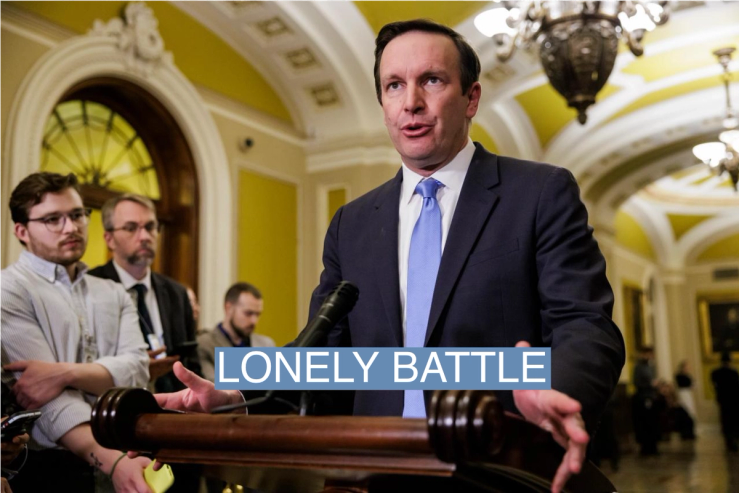The Scoop
Sen. Chris Murphy, D-Conn. and Utah’s Republican Gov. Spencer Cox are joining forces to try and address a vexing problem plaguing the U.S.: Americans are less and less happy.
Today, the pair is launching the “Restoring the Common Good Initiative,” a bipartisan effort they describe as a way to move away from the divisive politics of Washington and talk about and better understand “the state of American anxiety,” Murphy told Semafor in an interview.
US policymakers are grappling with a divided electorate that, data suggests, is increasingly dissatisfied with their political leaders and their lives. A majority of Americans — including young Americans — believe the country to be headed in the wrong direction, according to recent polling. National suicide rates are on the rise. The US slipped from 15th to 23rd on Gallup’s global happiness tracker released earlier this year.
“The goal is to take a big step back from these important but overworn policy fights that Republicans and Democrats are having,” Murphy said. “Our goal is to try to get political leaders to start asking bigger, more fundamental questions, like what makes up a good life.”
In this article:
Know More
Murphy said he was introduced to Cox, who was elected in 2021, by Sen. Mitt Romney, R-Utah, about a year ago and that the two have been talking, texting, and emailing since. He said he took notice of Cox’s approach to issues concerning families, including Utah’s laws restricting children’s access to social media.
The two officials will lead roundtable conversations, with the first scheduled in Salt Lake City on Friday, according to a congressional aide. Events in Tennessee and Washington will likely follow, Murphy said.
“Many Americans are less happy and less hopeful than ever before,” reads a mission statement from the two officials. Their aim, it says, “is to convene a series of informal conversations across the country that seek to break down the traditional zero-sum limitations of our current politics and explore new areas of work that can bring together the right and left to show a path to help more Americans lead meaningful, fulfilled lives.”
Murphy and Cox have tapped a group of thinkers on the left and right to join their new crusade: Harvard philosopher Ian Corbin; the American Enterprise Institute’s Tim Carney and Yuval Levin; social activist Bishop William Joseph Barber II; Roosevelt Institute president Felicia Wong; Brigham Young University psychology professor Julianne Holt-Lunstad; and journalist Sam Quinones.
Murphy says they’ll measure success by whether anyone listens.
“I think if these conversations happen and nobody notices and nobody tries to replicate them, then we’ll have failed,” Murphy said. “My hope is that we would set off a conversation that other people would try to build on.”
Morgan’s view
It’s not everyday you see politicians try to take themselves out of the political fights in Washington to wage a more spiritual and bipartisan battle — especially in an election year. But in some sense its not surprising to see Murphy, who’s known on Capitol Hill as an across-the-aisle dealmaker with a philosophical streak, give it a shot. More broadly, the divisiveness in Washington seems to have left some politicians craving opportunities for bipartisanship, both on major pressing issues like Ukraine or TikTok, or topics further removed from the headlines like mental health and happiness.
Interestingly, both Murphy and Cox are up for reelection this year, though Murphy faces no real threat and Cox — who has called for more civil debates as the chair of the National Governors Association — has a massive lead over his primary opponents in polling.
Murphy also said he intends to keep the new initiative away from the heat of the campaign (political funds will, however, be used to pay for flights and other expenses, an aide said).
“I don’t imagine that we’re going to be having forums in September and October,” he told me. The two will “probably do these forums through the spring and the summer, probably put it to bed for the fall and pick it back up afterwards,” he said.


